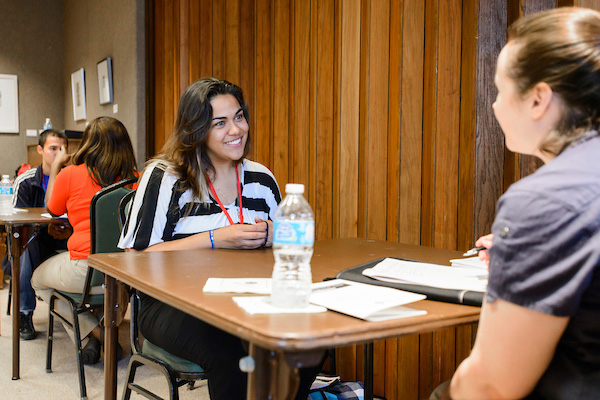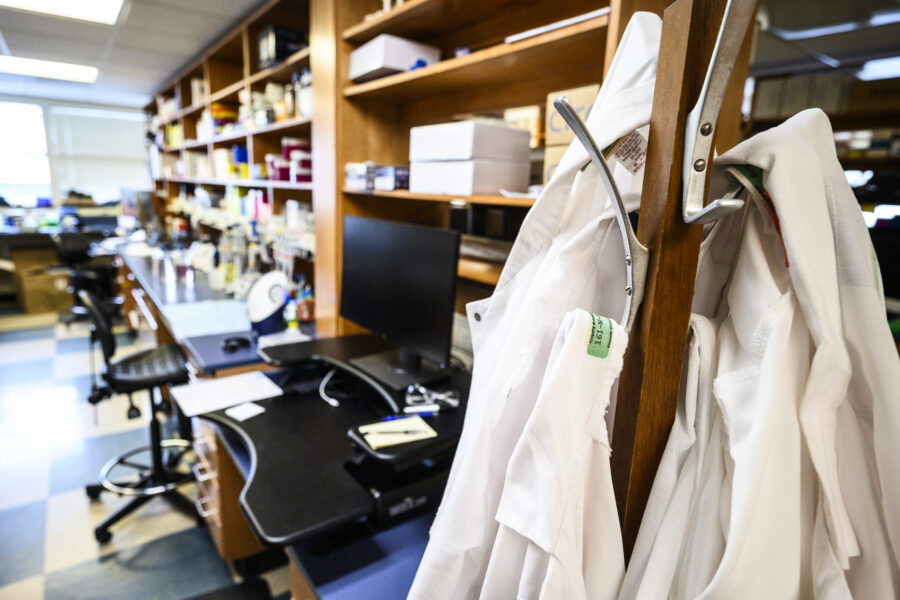About Radiation Therapy
According to the American Registry of Radiologic Technologists (ARRT) Radiation Therapists work closely with other members of the radiology oncology team. More specifically they use equipment to administer therapeutic doses of radiation while caring for patients with cancer and other serious diseases.
For the most up-to-date salary information, visit the U.S. Bureau of Labor Statistics website.
Note: UW-Madison does not offer a Radiation Therapy program. While this field is not among CPHA’s primary areas of advising expertise, we are here to support you in exploring the career, building helpful experiences, and navigating some aspects of professional program applications. Talk with us if you have questions!
Radiation Therapist (T)
To become a Radiation Therapist (T), students need to earn an associate’s degree or higher and complete an ARRT-approved Associates, Bachelor’s or Certificate program in Radiation Therapy. They will then need to satisfy an ethics requirement and take a certification exam through American Registry of Radiologic Technologists (ARRT).
Some of these programs have tracks that are designed specifically for Radiologic Technologists (or Radiographers) who are interested in becoming Radiation Therapists
Likewise, if you have a background in Radiation Therapy, there are educational pathways to become a Medical Dosimetrist and it is possible to become a CT Technologist, MRI Technologist, Bone Densitometry Technologist, or Vascular Sonographer through the American Registry of Radiologic Technologists (ARRT) post-primary certification process.
Explore Your Interest in Radiation Therapy
Shadowing & Informational Interviews
An excellent way to explore your interest is by talking to a Radiation Therapist and observing their work directly. If you have friends or family who work in health care (in ANY role) ask if they know any Radiation Therapists or look for Radiation Therapists on LinkedIn, Instagram, or TikTok to see if they are willing to talk about their career.
Volunteering
Radiation Therapy programs may look for applicants who demonstrate a sustained commitment to serving others. Learn more about opportunities to volunteer in clinical and non clinical settings.
Jobs
After volunteering and exploring, working in research or a healthcare setting, potentially providing direct patient care, is a great way to learn about practical aspects of the field.
Finding a Program
Programs Accredited by the Joint Review Committee on Education in Radiologic Technology (JRCERT) including those through Bellin University and UW-La Crosse
The American Registry of Radiologic Technologists (ARRT) also has a list of approved programs.
Educational & Professional Assocations
Application Process
Associate and Bachelor’s programs typically require that applicants apply to the institution as a degree seeking (or second degree) student.
However, there may be other requirements to apply to their Radiation Therapy program once admitted to the institution including prerequisite courses, a specified number of observation hours, etc. Requirements vary from school to school, so it’s always necessary to consult program websites.
Additionally, if it is a program designed for folks with a background in Radiologic Technology (or Radiography), proof of ARRT certification as a Radiologic Technologist may be required.
Some programs may have fee waivers available. Contact them directly for more information.


